11 Things You Should Never Clean With Vinegar
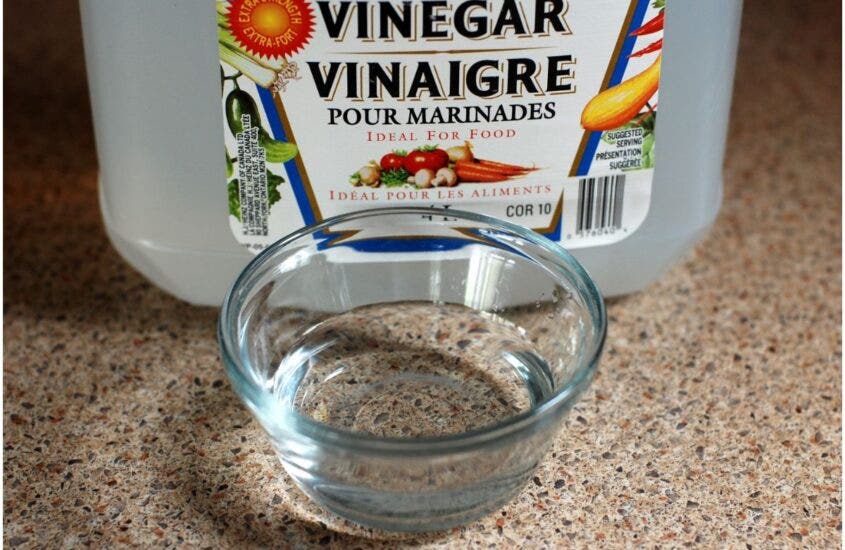
You may be familiar with the fact that vinegar works surprisingly well when cleaning things.
The different chemicals in vinegar combined create an acid, and this acidic liquid can be used to clean a wide variety of different things.
Often, you will hear people suggesting that you use vinegar to clean stubborn stains and surfaces that are typically tricky to get clean.
However, while you can use vinegar to clean a variety of different surfaces, there are also quite a few things that you should never clean with vinegar. This is because vinegar can cause damage in the cleaning process.
In this guide, we’re taking a look at 11 things that you should never clean with vinegar.
Table of Contents
1. Tech Devices
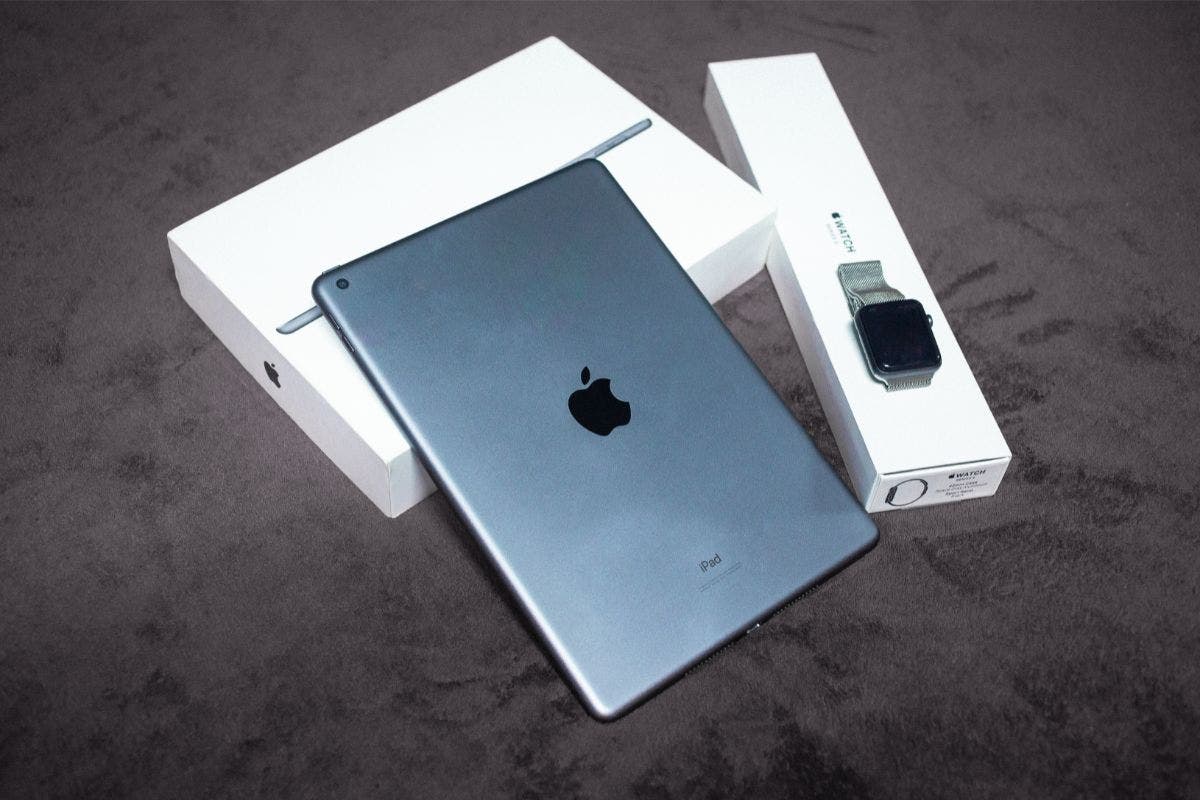
First up, we have tech devices. The term “tech devices” covers a huge variety of different things, and we include multiple different technological devices in this group.
In short, any device with a touch screen, keyboard or electronic component, you should avoid cleaning with vinegar.
While it might be tempting to spray a little vinegar onto a microfiber cloth and wipe it across the screen of your iPhone, this is something that you should never do. The same goes for your laptop’s keyboard.
Tech devices are notorious for being tricky, and vinegar can damage the tech’s ability to do its job.
This is why you should stick to detergents that are specifically designed for tech devices when it comes to cleaning keyboards and touch screens.
2. Steam Irons
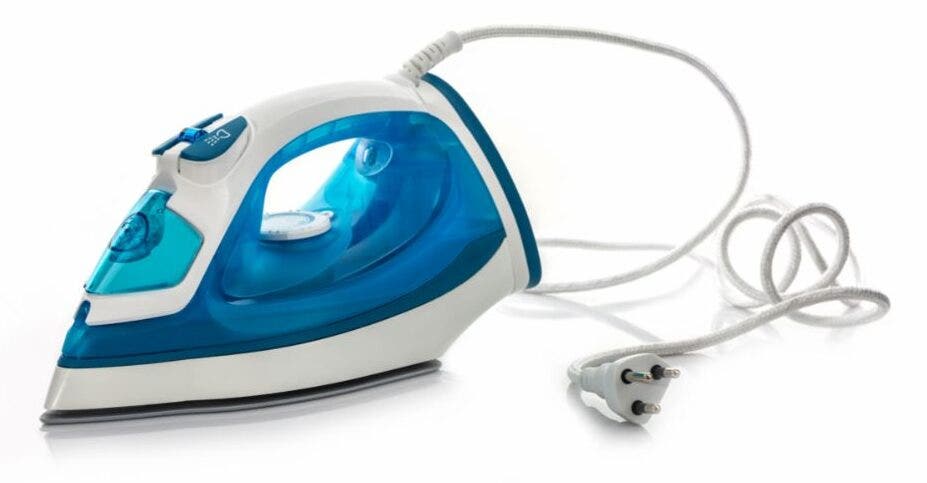
Another electronic device that you should never use vinegar to clean is your steam iron.
Many people are tempted to use vinegar to remove any limescale from the surface of their oven as it works very effectively for kettles, but you shouldn’t do this.
The main reason why you should avoid using vinegar on your steam iron is that it will damage your iron.
The damage to the iron won’t be instant, but it won’t be good.
Over time, the vinegar will eat away at the different components of the iron, damaging the plastic, rubber, and metal parts of the iron.
This will eventually prevent the steam iron from doing its job. So, to protect your iron, you should never use vinegar to clean it.
3. Washing Machines
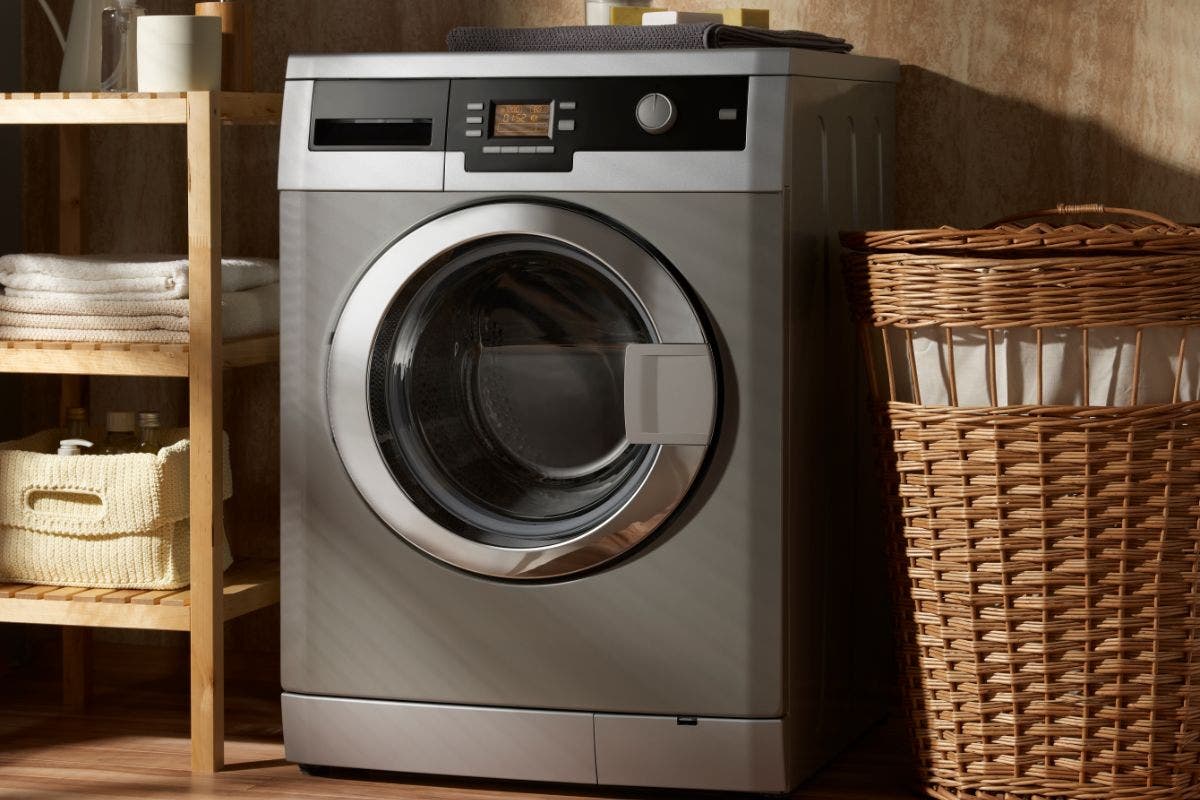
Another household appliance that you should never use vinegar to clean is your washing machine.
The vinegar can damage your washing machine, and as these appliances are often expensive to purchase, it is likely that this is something you will want to avoid.
Just like steam irons, your washing machine is made up of multiple different parts, including plastic and rubber components. The vinegar can damage these components over time, and this will prevent your washing machine from working effectively.
So, if anybody ever tells you to use vinegar as a substitute to washing machine cleaner, this is advice that we would recommend not taking.
4. Dish Washers
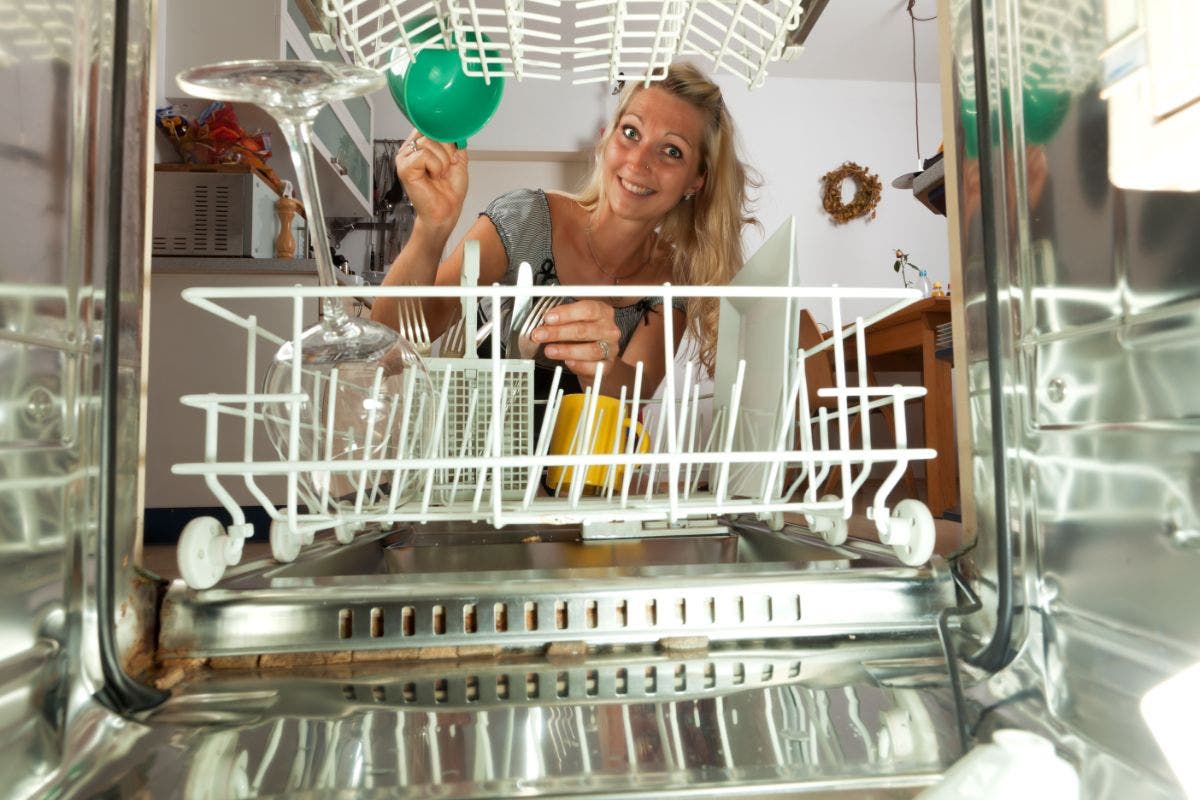
The same goes for your dishwasher. While your washing machine washes clothes and bedding and your dishwasher washes dishes, they are surprisingly similar.
The design of dishwashers and washing machines are very alike, and this includes the use of plastic and rubber.
Due to the rubber and plastic components of the dishwasher, it is not appropriate for you to use vinegar to clean your dishwasher as it will actively damage the mechanisms of the machine.
So, avoid placing vinegar in your dishwasher to ensure the longevity of your machine.
5. Mirrors
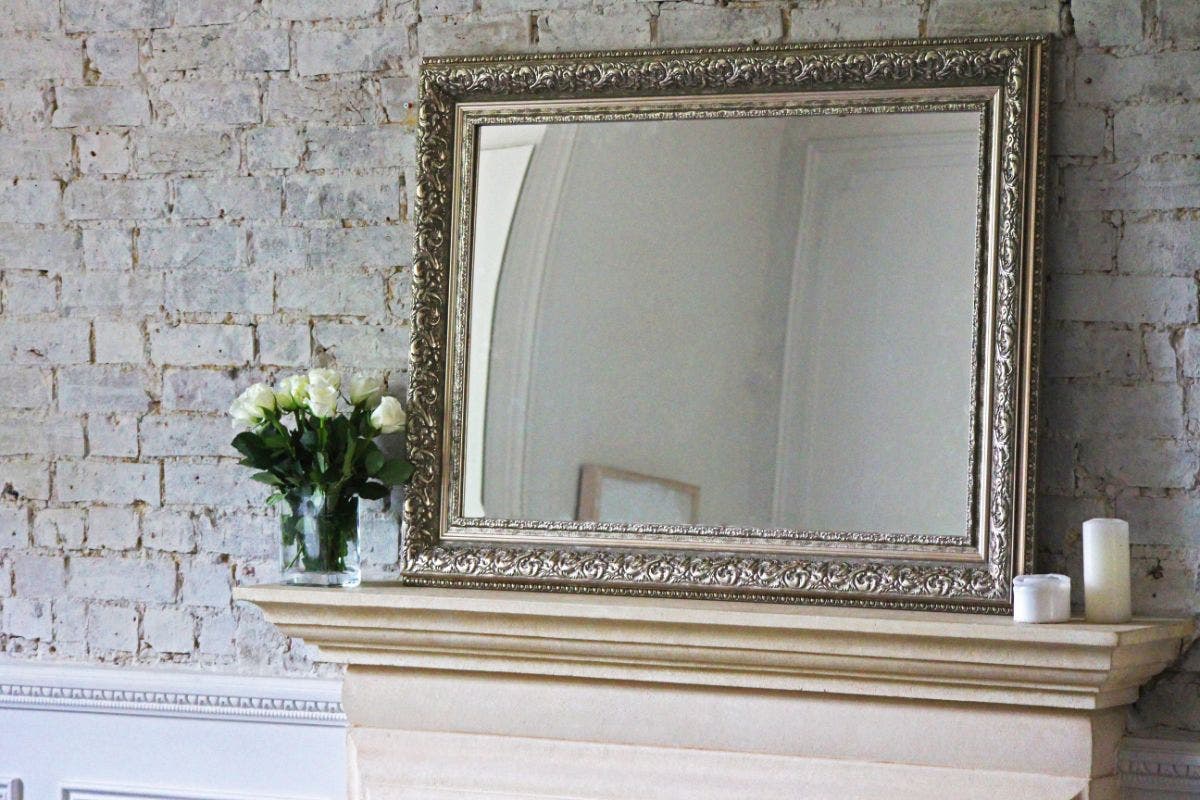
Mirrors around the home can get dirty incredibly quickly, and to avoid this, you might find yourself constantly searching for things that you can use to clean your mirror.
But if anybody suggests vinegar, this is a recommendation that you should ignore.
Vinegar actually damages your mirror when you use it to clean it, so this isn’t something that you should do. In fact, you should avoid any cleaners that contain acid because the acid can really damage the mirror.
Your mirror shines because of a thin metal layer that sits behind the glass. Without this metal layer, the mirror would not shine.
Acidic cleaners will seep through the mirror onto the thin metal layer and cause corrosion. This corrosion will stop your mirror from shining. So, you shouldn’t use acid-based cleaners on any of the mirrors in your home.
6. Granite/Marble Surfaces
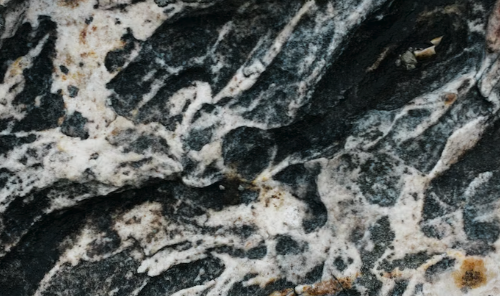
Something else that often comes with a shine is marble surfaces.
No matter whether you have marble worktops or marble flooring, often this material will come with a high gloss finish, and cleaning it with vinegar can prevent it from shining.
But this isn’t the only way in which vinegar can damage this material.
Vinegar can damage both granite and marble surfaces, even if it is only left on the surface for a very small amount of time. It can eat away at the surface, making it rough and unable to glow.
So don’t mess around when it comes to cleaning granite and marble surfaces – avoid vinegar and acid-based cleaners to protect your countertops and flooring.
7. Stone Floors
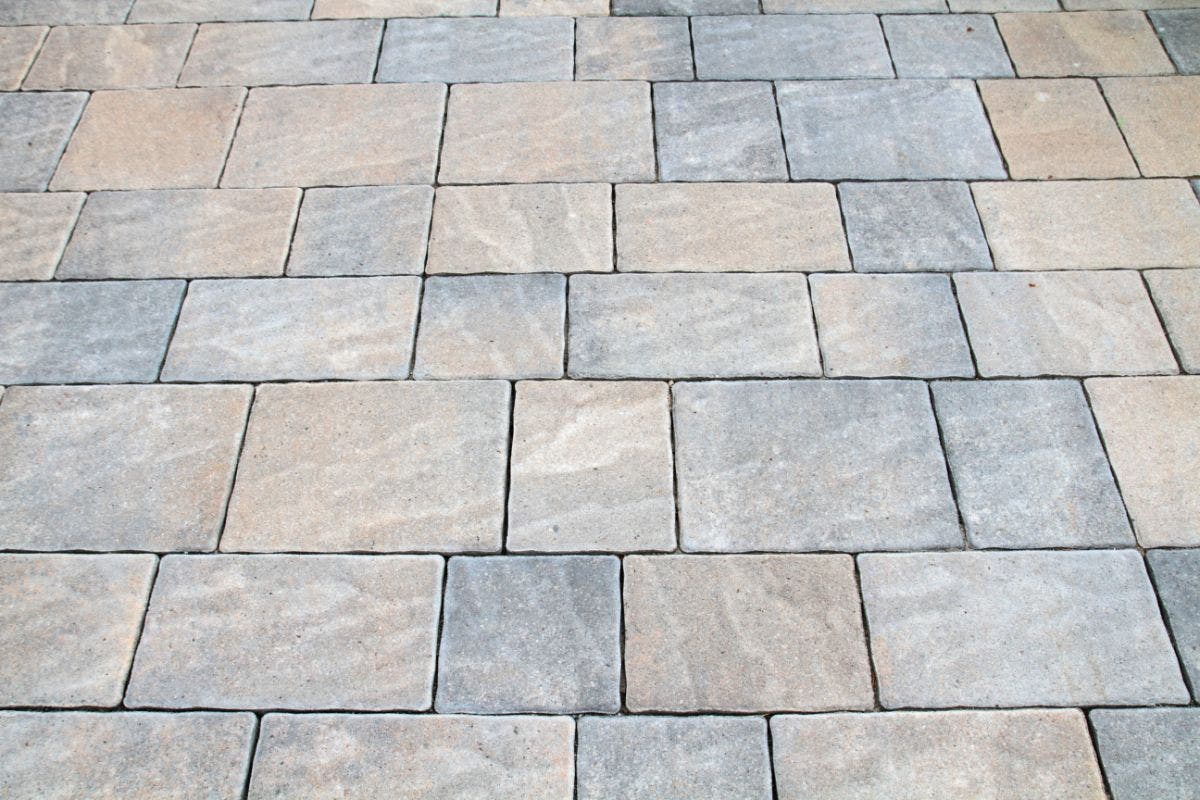
The same goes for stone floors. Stone flooring in the home is covered with a protective layer to ensure that the stone does not become damaged when it is walked upon. Vinegar can damage this protective layer.
Stone flooring is designed to last, and this is something that you want to ensure when you clean it. Not something that you want to prevent.
Repeatedly using a vinegar or acid-based cleaner will damage the stone flooring and prevent it from lasting as long as it is supposed to.
So, to ensure the life of your stone flooring, you shouldn’t use any cleaners that include vinegar on the flooring.
8. Unsealed Grout
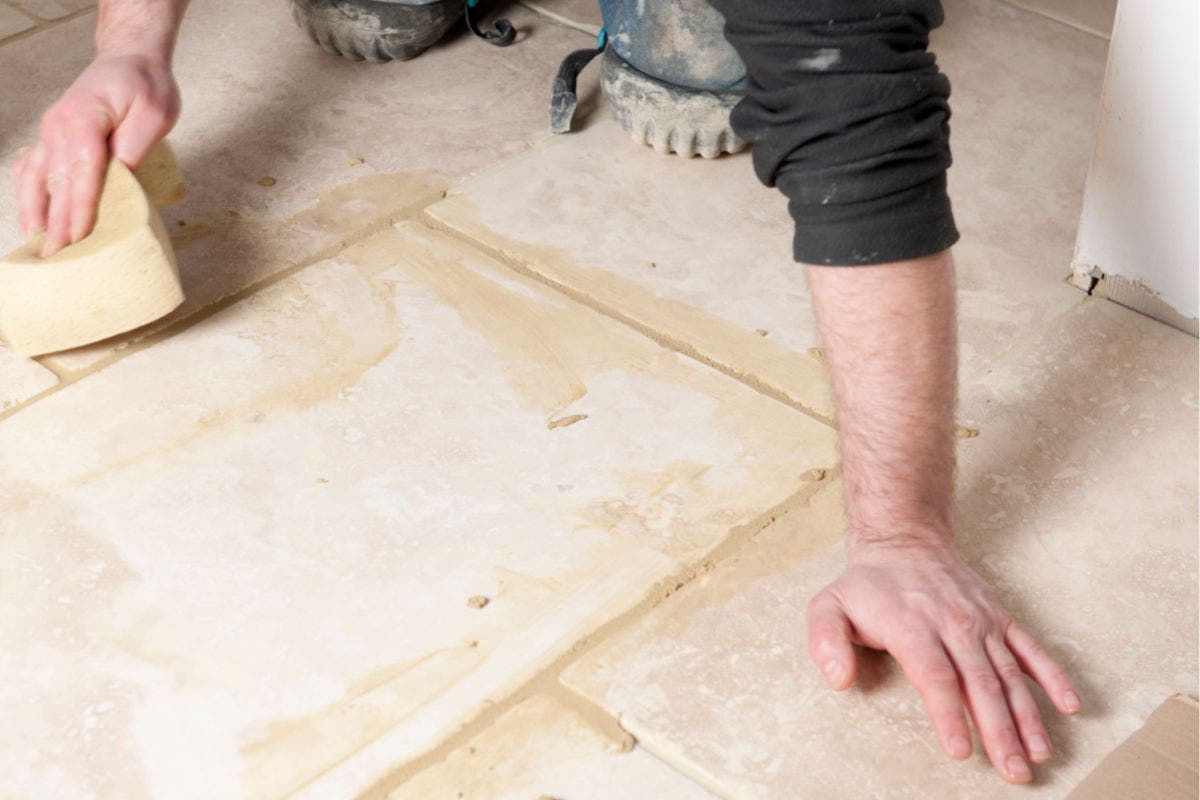
If you have grout between tiles in your home that has not been sealed, then you shouldn’t use vinegar as a cleaning solution on your tiles. This is because vinegar can damage unsealed grout.
Some people will recommend using vinegar based solutions if you struggle with mold or mildew in your bathroom, and this is perfectly fine. As long as the grout is sealed, of course.
If the grout is unsealed, or it has become damaged, the vinegar can penetrate the grout and cause it to break down.
In turn, this will cause the grout to break down, and in some cases, fall out, making your tiles unstable. So avoid vinegar-based cleaning solutions until your grout has been sealed or fixed.
9. Wood Furniture and Flooring

Vinegar is a liquid, and as you will probably be aware, liquid-based cleaning solutions should be used sparingly on wooden surfaces.
Wood is porous, so it absorbs liquid. This is why excessive use of liquid-based cleaners can damage not only wooden flooring but wooden furniture too.
Personally, we would never recommend using vinegar-based cleaning detergents on your wooden furniture or flooring. While this is something that many cleaning influencers recommend, for us, it simply isn’t worth the risk.
Something as simple as forgetting about the vinegar you have applied to the wood could cause your furniture to become discolored.
Likewise, adding too much while you clean could cause your wooden flooring to lift and become distorted.
It might do a good job at cleaning wood, but the risk of using vinegar really outweighs the benefit. So you should avoid using it on wooden floors and furniture.
10. Ceramic Tiles
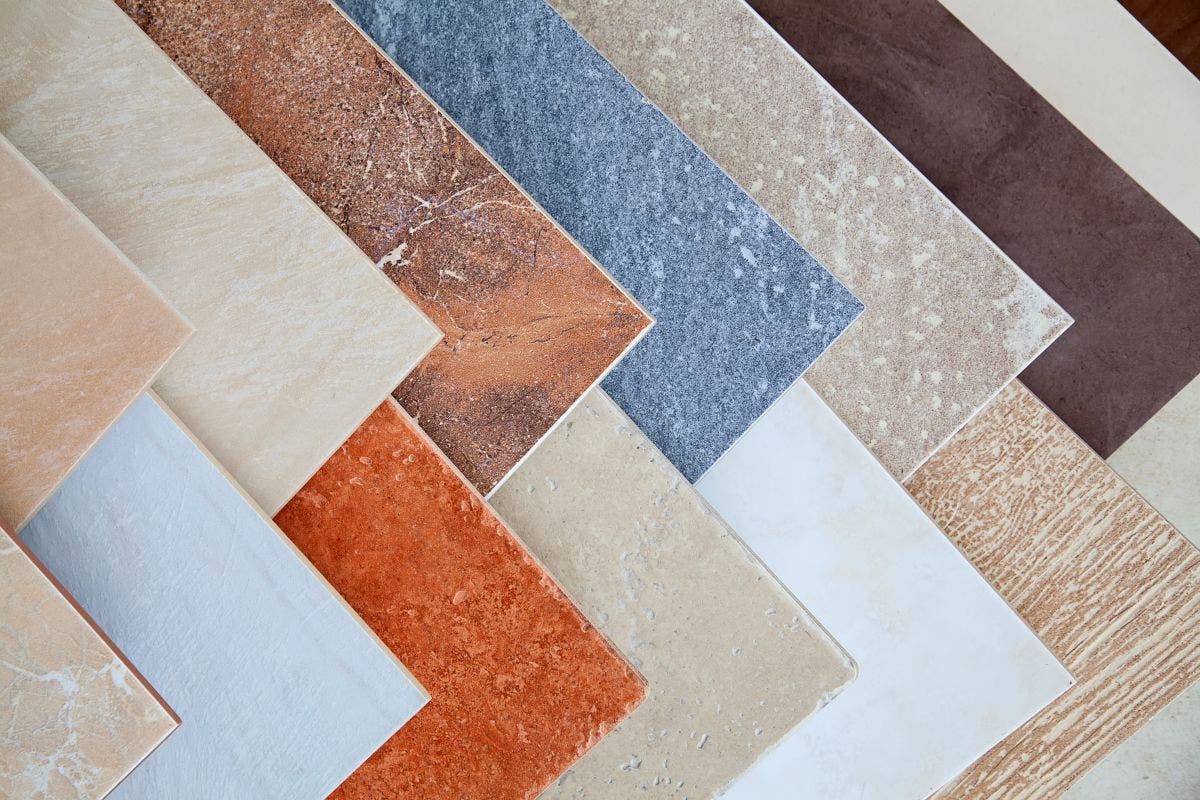
Ceramic tiles are incredibly easy to damage, and so you should avoid using any abrasive cleaners on your tiles. This includes vinegar.
If you have ceramic tiles, then you will know that these tiles stain incredibly easily.
For this very reason, it is very important that any spillages on ceramic tiles are cleaned up immediately. Likewise, no harsh cleaners should be used on the tiles.
With ceramic tiles, we would recommend only using a gentle cloth and some hot water with gentle dish soap to clean the tiles. Anything other than this risks damaging the tiles, including vinegar.
11. Knives

Finally, you should never use vinegar to clean your knives. Some influencers will recommend soaking your knives in vinegar as vinegar can help to break down rust, but this isn’t something that we would recommend.
While the vinegar may help to break down any rust that has developed on the surface of your knives, it will also damage your knives in the process.
Not only can it dull down the color of your knives but also impact their effectiveness.
So, if you want your knives to last, you should avoid soaking them in vinegar.
Thank you for reading!

Related Articles
- What are the different types of range hoods?
- 4 Types of Range Hoods to Never Buy! (And Why)
- Determining the Ideal CFM for Your Outdoor Range Hood (From the Pros)
- Does an outdoor kitchen need a vent hood? (From Experts)
- Who to Hire for Flawless Outdoor Range Hood Installation





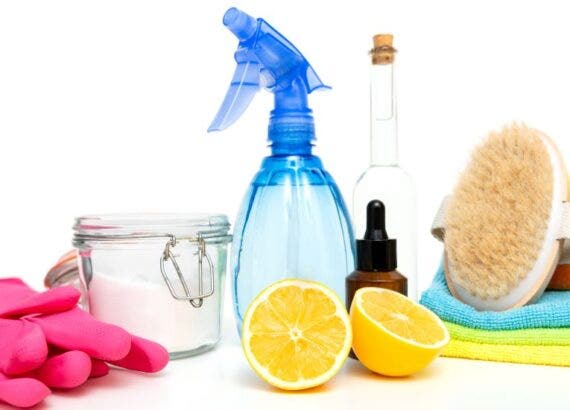

Comments are closed.